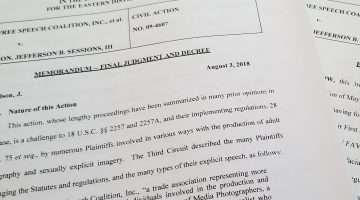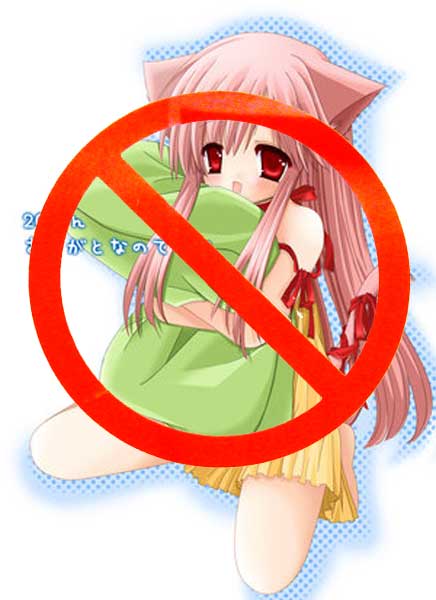 DES MOINES, IA – An Iowa man faces as many as 15 years in prison and fines of up to $250,000 after pleading guilty to importing child porn and bestiality in the form of Japanese manga comics.
DES MOINES, IA – An Iowa man faces as many as 15 years in prison and fines of up to $250,000 after pleading guilty to importing child porn and bestiality in the form of Japanese manga comics.
In pleading to “possession of obscene visual representations of the sexual abuse of children,” Christopher Handley, 39, became the first U.S. resident convicted under the 2003 Protect Act
clause that outlaws cartoons, drawings, sculptures or paintings depicting minors engaging in sexually explicit conduct. Three additional charges were dropped as part of the plea bargain. His attorney, who described Handley as a “prolific collector” of the Japanese art form, said Handley’s conviction also stands as the first of a U.S. resident for possessing alleged “child porn” that involved only cartoons — not harm to actual children. He said the plea deal sets a dangerous precedent.
“[The Protect Act is] probably the only law I’m aware of, if a client shows me a book or magazine or movie and asks me if this image is illegal, I can’t tell them,” Eric Chase, Handley’s attorney, told Wired.com’s Threat Level blog.
He did, however, allow that some of the indicted images were fairly extreme.
“If they can imagine it, they drew it,” he told Wired.com. “Use your imagination. It was there.”
Comic fans and free-speech advocates were outraged and alarmed by Handley’s case. The pursuit of comics collectors does nothing to protect children, they assert.
“This art that this man possessed as part of a larger collection of manga … is now the basis for [a sentence] designed to protect children from abuse,” Charles Brownstein, executive director of the Comic Book Legal Defense Fund, said in a press release. “The drawings are not obscene and are not tantamount to pornography. They are lines on paper.”
Handley’s case began in 2006 after customs officials intercepted a package containing seven books of allegedly obscene manga. According to a manga expert, the books were of a widely popular variety known as Lolicon, which is Japanese wordplay on “Lolita.”
“This stuff is huge in Japan, in all of Asia,” Frenchy Lunning, the manga expert from the Minneapolis College of Art and Design, told Wired.com. Lunning was a consultant on the case.
However, she added, “[Handley] is not a pedophile. He had no photographs of child pornography.”
Brownstein said he hopes the Handley case will have minimal impact on comics collectors and the industry as a whole.
“Because the set of facts specific to this case were so unique, we hope that its importance as precedent will be minimal,” he noted in a prepared statement. “However, we must also continue to be prepared for the possibility that other cases could arise in the future as a result.
“Mr. Handley now faces the loss of his freedom and his property, all for owning a handful of comic books. It’s chilling. The [Comic Book Legal Defense] Fund remains unwavering in our commitment to be prepared to manage future threats of this nature wherever they arise. This is the unfortunate conclusion of Mr. Handley’s case, but it is not the end of this sort of prosecution. For that reason, the Fund stands steadfast in our commitment to defending the First Amendment rights of the comics art form.”












No Comment